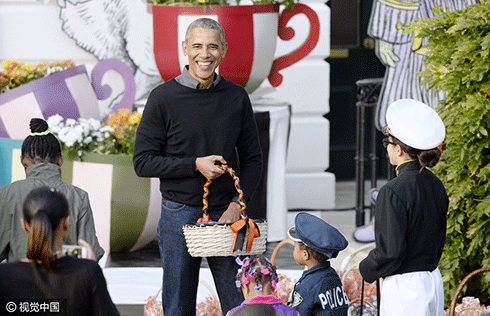French army to stay in Mali until 'sovereignty: Hollande
BAMAKO - France will withdraw its troops from Mali once the Sahel state has restored sovereignty over its national territory and a UN-backed African military force can take over from the French soldiers, French President Francois Hollande said on Saturday.
"We have not yet finished our mission. But we do not foresee staying indefinitely. Once the sovereignty of Mali is restored, once MISMA (the African force) can replace our own troops, we will withdraw," he told a news conference in Bamako during a one-day visit to Mali.
Hollande said shortly afterwards in a public speech France's three-week-old military intervention against Islamist rebels had inflicted "heavy losses" on them, but had not eliminated them.
Malians say "Thank you, France!" as Hollande visits
Malians chanting "Thank you, France!" mobbed President Francois Hollande on Saturday as he visited the desert city of Timbuktu, retaken from Islamist rebels, and pledged France's sustained support for Mali to expel jihadists.
Hollande, accompanied by his ministers for defence, foreign affairs and development, was on a one-day trip to the Sahel nation to support French troops who in three weeks have ousted fighters allied with al Qaeda from Mali's main northern towns.
He met the interim president, Dioncounda Traore, and the two held talks in Timbuktu and later in Bamako, the capital in the south where the French leader also received a rapturous welcome.
Speaking in Timbuktu, Hollande said the French operation, which has driven the rebels into the mountains of northeast Mali at the cost of only one French serviceman killed so far, would eventually hand over to a larger African military force.
"The combat is not over," he said, flanked by Traore, in a speech praising the French forces.
"We are obliged to support the Malians until they have recovered their entire sovereignty. We'll do it with the Africans," he added separately to reporters.
Traore said: "Together we will hunt the terrorists down to their last hiding place."
The United States and the European Union are backing the Mali intervention as a counterstrike against the threat of Islamist jihadists using the inhospitable and ungoverned Malian Sahara as a launch pad for international attacks.
They are providing training, logistical and intelligence support, but have ruled out sending their own ground troops.
In Timbuktu, the renowned Saharan trading town and seat of Islamic learning that spent 10 months under rebel occupation, Hollande visited the Djingarei-ber or Grand Mosque and the Ahmed Baba Institute, a library of ancient manuscripts that was ransacked by the rebels.
Hollande said it was essential that Timbuktu, a UNESCO World Heritage site, should be properly protected so that it could "shine" as a cultural treasure for the world.
Heavy protection
Heavily armed French soldiers in armoured vehicles and Malian troops protected the French leader as he visited the mosque, which was built from mud bricks and wood in 1325. French and Malian flags fluttered from telephone poles.
French sniffer dogs checked for explosive devices.
In a dusty square at the Ahmed Baba library, several thousand Timbuktu residents in colourful robes and wraps sang and danced, shouting "Thank you, France" and "Papa Hollande".
"I'm so proud of Francois Hollande, we have got our old lives back," Khalifa Cisse, the muezzin or crier who calls the faithful to daily prayer at the mosque, told Reuters.
Hollande has said that the French operation, which has 3,500 soldiers on Malian soil backed by warplanes, helicopters and armoured vehicles, aims to make way eventually for a U.N.-backed African force, which is still being deployed.
Drawn mostly from Mali's West African neighbours, this force is expected to number more than 8,000. But its deployment has been badly hampered by shortages of kit and airlift capacity and questions about who will fund the estimated $1 billion cost.
France's role in Mali has raised fears of reprisal attacks by Islamist radicals against French and other Westerners.
A Frenchman was among four people killed in Senegal's restive southern Casamance region late on Friday when suspected local separatist rebels clashed with government troops, but the incident did not appear to be linked to Mali.
























